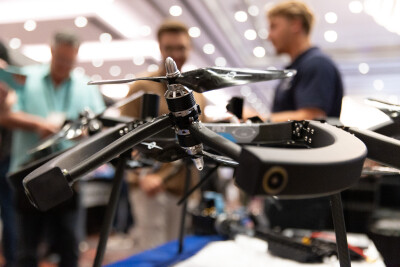In a recent keynote, Volvo CEO Jim Rowan announced that the upcoming electric SUV Volvo EX90 passenger vehicle will include Luminar’s Iris lidar technology as standard. For Luminar, this will mark its first global launch of its technology on a passenger vehicle. This means that for the first time, a global production vehicle will seamlessly integrate a long-range, automotive grade lidar to enable a safe and smart passenger car on the road.
The lidar integration is the result of a collaboration between the two companies that started in 2016. By 2020, a deal to integrate Luminar’s series production technology, Iris, into next generation Volvos was inked. Last year, Volvo Cars moved to make Luminar’s technology standard on its upcoming Volvo EX90, to be revealed this November.
Using software and sensors to improve safety
In that same keynote, Rowan stressed the importance of improving safety through the lidar technology integration, citing company research that shows that Volvo’s software and sensors can help reduce accidents that result in serious injury or death by up to 20 percent. Additionally, Volvo estimates forementioned technology can help improve overall crash avoidance by up to 9 percent, which could lead to millions of accidents avoided over time. In addition to the sensors that monitor the surroundings of the car to create a 360-degree view, the inside of the car is also monitored to improve safety. Special sensors and cameras, powered by in-house developed algorithms, gauge eye gaze concentration, which allows the EX90 to see when a driver is distracted, tired, or otherwise inattentive.
Luminar’s hardware and proprietary software-enabled lidar includes slim designed roofline-attached customized sensors that sense the road in front of a vehicle driver during night and day at highway speeds. These can see small objects hundreds of meters ahead, creating more time to inform, act and avoid. Luminar’s lidar sensors will complement five radars, eight cameras and sixteen ultrasonic sensors in Volvo’s EX90, a fully electric SUV, providing excellent vision and perception reliability.
Together with the Volvo Cars announcement, Swedish car manufacturer Polestar officially revealed its Polestar 3 electric performance SUV, which will also include Luminar lidar technology to improve safety. As standard, Polestar 3 features a total of five radar modules, five external cameras and twelve external ultrasonic sensors to support numerous advanced safety features.
Enabling enhanced 3D scanning of a car’s surroundings
Polestar offers an optional Pilot Pack with lidar from Luminar that is available to order from the second quarter of 2023, which will add an additional control unit from NVIDIA: Three cameras, four ultrasonic sensors and cleaning for the front- and rear-view cameras, providing accurate real-time data about the car’s surroundings, especially in the long-range field. This enables enhanced 3D scanning of the car’s surroundings in greater detail and helps prepare the car for autonomous driving. The Polestar 3 is the first car from Polestar to feature centralized computing with the NVIDIA DRIVE core computer, running software from Volvo Cars. Serving as the AI brain, NVIDIA’s high-performance automotive platform processes data from the car’s multiple sensors and cameras to enable advanced driver-assistance safety features and driver monitoring.






